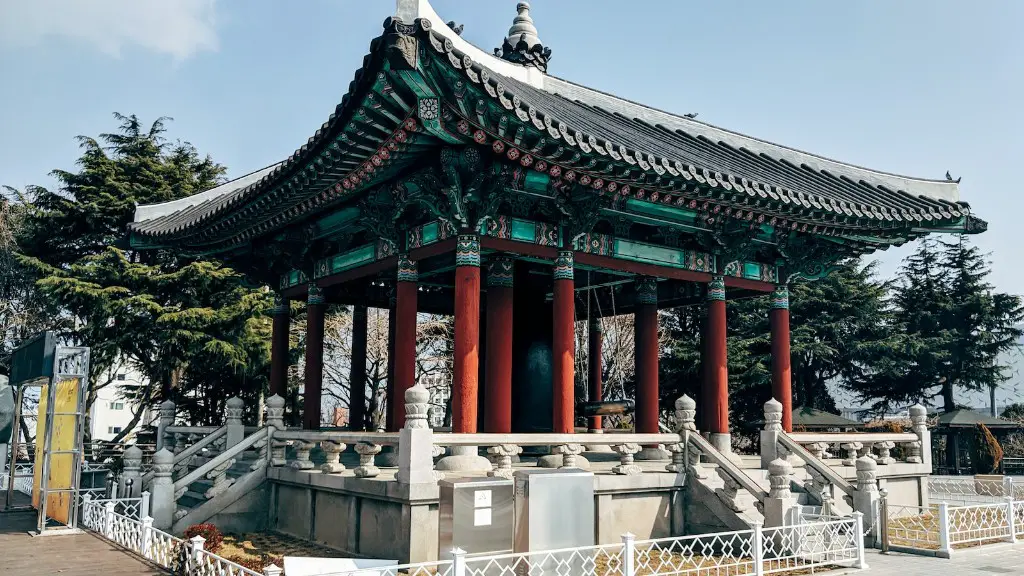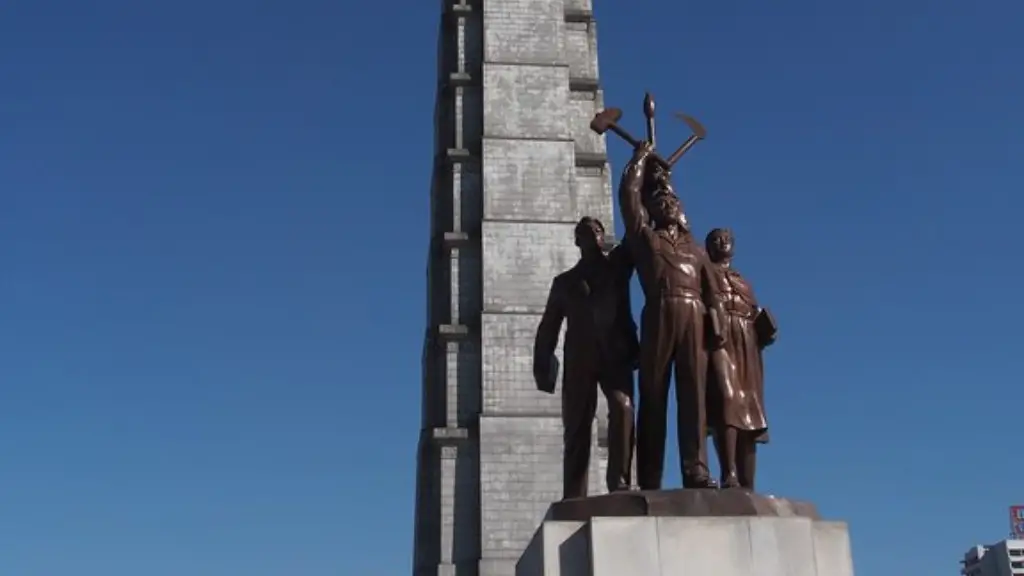The United States has placed sanctions on North Korea for its nuclear and ballistic missile programs. These sanctions are designed to impede North Korea’s ability to develop these weapons and to pressure the regime to abandon its nuclear ambitions. The sanctions also aim to block North Korea’s access to the international financial system and to restrict its trade with the outside world. The United States has imposed these sanctions through executive orders and legislation, and has worked with the United Nations Security Council to strengthen and enforce them.
The United States has maintained economic sanctions against North Korea since the 1950s. In recent years, these sanctions have been expanded and strengthened in response to North Korea’s nuclear weapons program. The sanctions currently in place are designed to restrict North Korea’s access to international financial markets and to limit its trade with the outside world. These sanctions are having a significant impact on North Korea’s economy, and are an important part of the international effort to pressure North Korea to abandon its nuclear weapons program.
When North Korea got sanctions?
The UNSC resolution imposed a series of sanctions on the DPRK in response to its nuclear test on 9 October 2006. The sanctions included a ban on the export of certain goods and technologies, as well as a freeze on the assets of individuals and entities associated with the DPRK’s nuclear and missile programs. The resolution also called for member states to take measures to prevent the transfer of funds and other resources that could contribute to the DPRK’s nuclear and missile programs.
Economic sanctions are a powerful tool that can be used to achieve particular policy goals or to punish countries for humanitarian violations. They are often used as an alternative to going to war, and can be very effective in pressuring countries to change their behavior. However, sanctions can also cause hardship for innocent civilians, and must be used carefully and with clear objectives in mind.
Are Americans allowed to do business with North Korea
In order to comply with OFAC and BIS regulations, all new investment in North Korea by a US person is prohibited. In addition, the exportation or reexportation of any goods, services, or technology from the United States to North Korea is also prohibited. These regulations are in place in order to prevent the proliferation of weapons of mass destruction and to promote the peaceful resolution of the North Korean nuclear issue.
If you’re traveling to North Korea, it’s important to be aware of the country’s strict laws about what you can bring into the country. Religious, pornographic, and political items are all illegal, and you must declare all published material and electronic devices upon arrival. It’s also illegal to knowingly or unknowingly possess items that breach North Korean law, so it’s important to be familiar with the country’s regulations before you travel.
What is the current relationship between the US and North Korea?
The United States and North Korea have a long history of tension and hostility between them. The United States does not recognise North Korea as a legitimate country, and instead regards South Korea as the sole legitimate government of Korea. This has led to a number of conflicts and skirmishes between the two countries over the years, as well as a general feeling of mistrust and animosity.
The United States has a long-standing commitment to peace and security on the Korean Peninsula. The United States works closely with allies and partners in the region to maintain peace and stability on the peninsula. The United States is committed to the denuclearization of the Korean Peninsula and to the safety and security of our allies and partners in the region.
What does it mean when the U.S. sanctions?
The Office of Foreign Assets Control (OFAC) of the US Department of the Treasury administers a number of different sanctions programs. The sanctions can be either comprehensive or selective, using the blocking of assets and trade restrictions to accomplish foreign policy and national security goals.
OFAC programs typically target countries, terrorists, international narcotics traffickers, and those engaged in activities related to the proliferation of weapons of mass destruction. Penalties for violating sanctions can be severe, including criminal fines and imprisonment. In addition, OFAC can impose civil penalties of up to $250,000 per violation, and can freeze assets and prohibit transactions with US citizens.
There are a variety of reasons why sanctions may be imposed on a country or entity. The most common reasons are listed below:
1. To enforce international law or UN resolutions
2. To pressure a country or entity to change its policies or behavior
3. To punish a country or entity for its past actions
4. To prevent a country or entity from acquiring certain items or technology
5. To isolate a country or entity diplomatically
6. To economic pressure a country or entity
7. To encourage regime change
8. In response to human rights violations
9. In response to terrorist activity
10. To limit the spread of nuclear weapons
11. To protect endangered species
12. For drug interdiction
How do sanctions affect the United States
An economic sanction is an official act by a government that is designed to punish another country for some perceived wrongdoing. Such sanctions typically involve restrictions on trade, financial transactions, and other economic activity.
While economic sanctions are often designed with the intention of inflicting economic pain on the target country, they often end up harming innocent civilians more than the government or businesses that are the intended targets. For example, if a targeted country’s industry gets sanctioned for a prolonged period of time, it can bring effects such as unemployment and industry collapse to the targeted industry. This can in turn lead to social unrest and instability, which can have far-reaching consequences.
There is no easy way to assess the effectiveness of economic sanctions. They can sometimes succeed in their objectives, but often at a high cost to those who are caught in the crossfire.
The number of Americans in North Korea is relatively small compared to other nations. They consist mainly of defectors and prisoners of war during and after the Korean War, as well as their locally born descendants. Additionally, there are occasional tours and group travel which consists of Americans via train or plane from China, some with temporal lodging and stay.
Can citizens of North Korea leave?
North Korean citizens usually cannot freely travel around the country, let alone travel abroad Emigration and immigration are strictly controlled. This is due to the North Korean government’s policy of tight control over its citizens.
The United States exported $432 thousand worth of goods to North Korea in 2018, according to the United Nations COMTRADE database on international trade. This is a slight increase from the $426 thousand worth of exports in 2017. The top export categories from the United States to North Korea in 2018 were: soybeans ($216 thousand), wheat ($114 thousand), and petroleum products ($102 thousand).
Why are we not allowed to go to North Korea
There is a serious risk of arrest and long-term detention of US nationals in North Korea. Americans are advised to exercise increased caution and to avoid travel to North Korea.
As of September 1, 2021, all US citizens traveling to Korea will need to have a valid visa or an approved Korea Electronic Travel Authorization (K-ETA) in order to enter the country. This change is being made in order to strengthen security measures and ensure that all visitors to Korea are properly documented. US citizens who do not have a visa or K-ETA will not be able to enter Korea and will be turned away at the border.
Can you take pictures in North Korea?
Contrary to what many people believe, or what the media may suggest, it is perfectly fine to take pictures and videos in North Korea. Of course, there are some restrictions in place and you should be respectful of the local customs and culture, but overall it is a safe and great place to take photos and videos.
The alliance between the United States and South Korea is one of the strongest in the world, and it has been a key factor in maintaining peace and security in the Korean Peninsula and the Indo-Pacific region. The United States and South Korea have fought together in Vietnam and Afghanistan, and their partnership is essential to promoting stability in the region.
Warp Up
The United States has imposed sanctions on North Korea since the 1950s in response to the North Korean regime’s aggressive behavior and human rights abuses. These sanctions have been tightened in recent years in an effort to dissuade North Korea from pursuing its nuclear weapons program. The most recent round of sanctions was imposed in 2016 in response to North Korea’s nuclear tests.
The United States has imposed sanctions on North Korea in an effort to get the country to abandon its nuclear weapons program. The sanctions have been largely unsuccessful, and North Korea continues to develop its nuclear capabilities.





